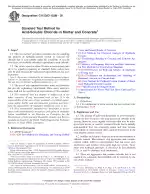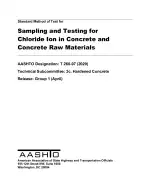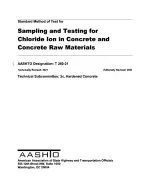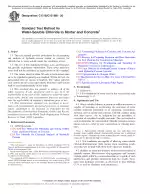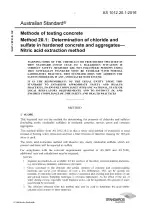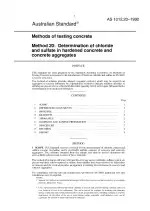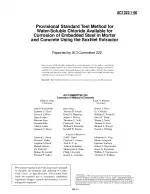ASTM C1152/C1152M-20 PDF Download
Standard ENStandard Test Method for Acid-Soluble Chloride in Mortar and Concrete
Also Known As:
ASTM C1152/C1152M-20 is a standard test method that provides procedures for the sampling and analysis of hydraulic-cement mortar or concrete to determine the amount of acid-soluble chloride present. In most cases, the presence of acid-soluble chloride is equivalent to total chloride. However, there are instances where some organic substances initially introduce chloride that is acid-insoluble but can eventually ionize and become acid-soluble or water-soluble over time in the highly alkaline cement system.
One potential interference in the determination of chloride content is the presence of sulfides, which can be found in blast-furnace slag aggregates and cements. These sulfides can cause interference and lead to erroneously high test results. To eliminate this interference, the standard recommends treating the sample with hydrogen peroxide, as described in Test Methods C114.
It is important to note that there may be aggregates containing chloride that is not available for corrosion. Despite this, such chloride can still be detected using the methods outlined in this standard.
The standard also includes references to notes and footnotes that provide additional explanatory information. It is worth mentioning that these notes and footnotes are not considered requirements of the standard.
| Descriptors | chloride content,Concrete,Hydraulic Cement,Mortars,Inorganic Matter Content |
| ICS Codes | 91.100.10 - Cement. Gypsum. Lime. Mortar 91.100.30 - Concrete and concrete products |
| Language(s) | English |
| File Size | 81.9 KB |

